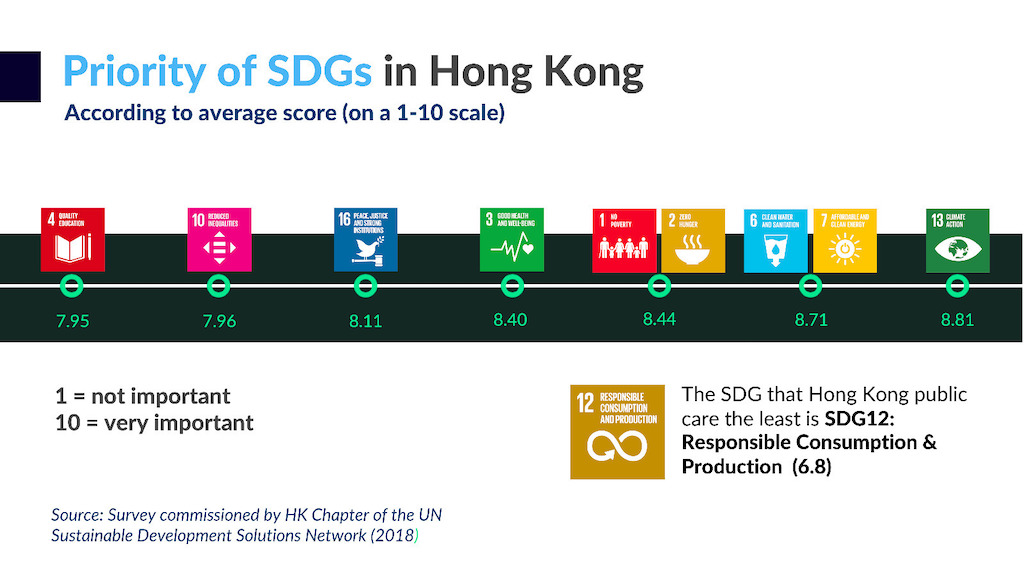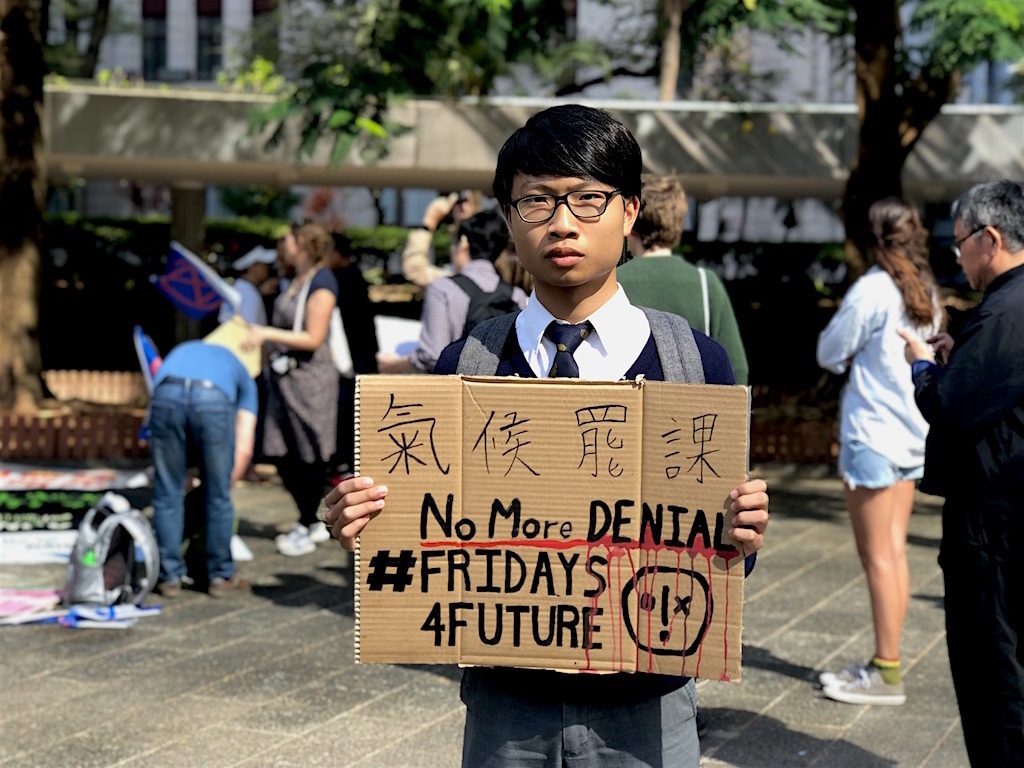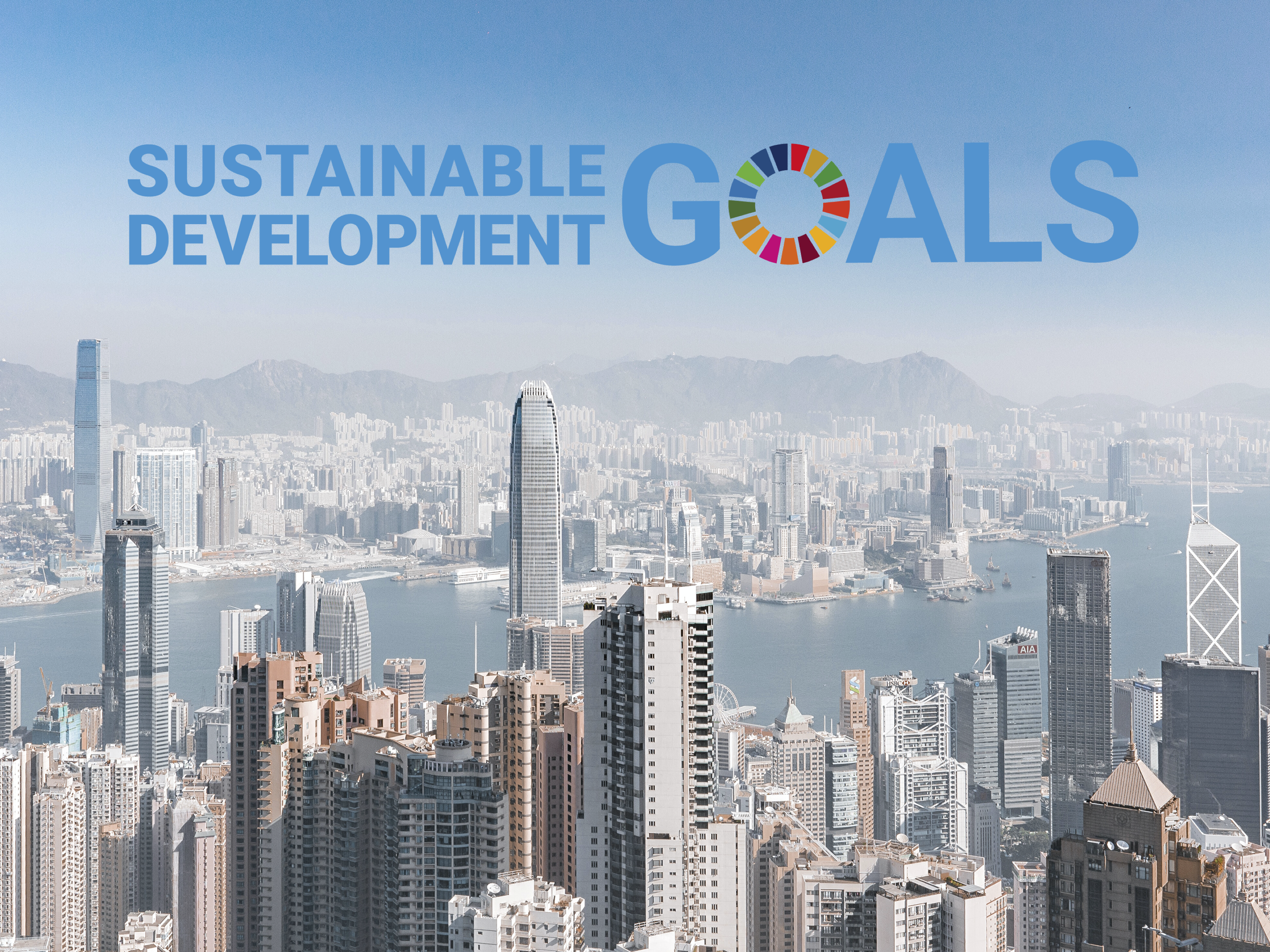8 Mins Read
How much do we in Hong Kong know about the Sustainable Development Goals (SDGs)? Benita Chick, the founder and CEO of Encompass HK, a social enterprise offering SDG training and consultancy services to organisations, explains the myths and highlights the challenges about achieving the SDGs here in Hong Kong.
The Sustainable Development Goals (SDGs), also known as the Global Goals, were adopted by all United Nations Member States in 2015 as a universal call to action to end poverty, protect the planet and ensure that all people enjoy peace and prosperity by 2030.
As stated by the Agenda, the global development blueprint is made up of 17 goals in total, which is an “urgent call for action by all countries – developed and developing – in a global partnership.”
These include:
- Goal #1: No Poverty
- Goal #2: Zero Hunger
- Goal #3: Good Health & Wellbeing
- Goal #4: Quality Education
- Goal #5: Gender Equality
- Goal #6: Clean Water & Sanitation
- Goal #7: Affordable & Clean Energy
- Goal #8: Decent Work & Economic Growth
- Goal #9: Industry, Innovation and Infrastructure
- Goal #10: Reduced Inequality
- Goal #11: Sustainable Cities and Communities
- Goal #12: Responsible Consumption & Production
- Goal #13: Climate Action
- Goal #14: Life Below Water
- Goal #15: Life on Land
- Goal #16: Peace, Justice & Strong Institutions
- Goal #17: Partnerships to achieve the Goals
All the 17 SDGs are integrated — that is, they recognize that action in one area will affect outcomes in others and that development must balance social, economic and environmental sustainability.
Under each of the SDG are sub-targets. For example, for Goal #5 Gender Equality, among some of the sub-targets include ending forms of discrimination against all women and girls everywhere (5.1), recognising the value of unpaid care and domestic work (5.4) and ensuring women’s full participation and equal opportunities for leadership at all levels of decision-making in political, economic and public life (5.5).
So where are we in terms of achieving the SDGs in Hong Kong? Surprisingly, only 15% of the Hong Kong population know about the SDGs. Even more surprising is the fact that the goal that was perceived as the least important was Responsible Consumption & Production (Goal #12), given the consumer-driven nature of Hong Kong society. This is consistent with global patterns, as highlighted in a 2018 study that found global progress towards sustainable consumption and production patterns is “too slow”.

A recent report published by the United Nations Economic and Social Commission (ESCAP) states that Asia and the Pacific will not achieve any of the 17 United Nations Sustainable Goals by 2030. Although there has been notable progress in Goals 1, 4 and 7, which aim to end poverty, ensure access to education and achieve affordable clean energy respectively, the pace of their current developments is undoubtedly still too slow to achieve the targets set out by 2030.
More shockingly, progress made on more than half of the SDGs, especially those related to the environment, has either stagnated or reversed. According to performance indicators, Goals 6, 8 and 12, which aim to provide clean water and sanitation, ensure economic growth and support responsible consumption and production respectively, have all displayed negative trends as compared to 2015. In particular, by 2030, the worsening conditions of hazardous waste generation and the reduction of forest area and water bodies are projected to be at their worst. If we look at Hong Kong specifically, Goal #11, which promotes sustainable cities, has seen the biggest reversal amongst all the 17 goals.
The only SDG that APAC has achieved an above-to-average score is Goal #4 on Quality Education. In Hong Kong, whilst the goal of ending hunger (#2) is less relevant, social issues are more important. Mental health, for instance, is a big issue in Hong Kong with nearly 1 in 10 people in Hong Kong likely to suffer from depression, and 1 in 3 young Hongkongers battling stress, anxiety or depression.
Poverty is also a major issue for Hong Kong. More than 1.37 million people in Hong Kong are living below the poverty line, struggling to survive in one of the most expensive cities in the world on as little as HK$4,000 or US$510 a month. Alongside poverty is the issue of striking inequality – Hong Kong’s Gini coefficient now stands at now stands at 0.539, its highest level in 45 years. A coefficient of 0 represents maximum equality whereas 1 represents maximum inequality. By comparison, the highest Gini coefficient among the major developed economies is 0.411, which is the figure in the United States.
Besides health and poverty issues, Hong Kong also lags behind in smart city development (Goal #11: Sustainable Cities). Many rapidly developing smart cities have platforms for the sharing of data. Public resources are turned into data and shared by the public and corporations. All sectors are encouraged to make use of such data to develop applications for citizens’ benefit. But in Hong Kong, the development of big data has been rather slow, so much so that a huge amount of useful data has gone to waste.
In terms of progress in this area, Hong Kong does not suffer from a lack of data, but rather the slow rate at which the government opens up data, with many providers of public services unwilling to make their data public. From waste treatment to making the city walkable or accessible and readjusting the city’s high water mark, Hong Kong has no plans yet to map itself against any Global Goals or building a sustainable city. To complicate this even further, because the SDGs are measured on a country-by-country basis, Hong Kong as a city has no real imperative to provide any SDG indicators.
Although some Hong Kong companies have made headways with achieving the SDGs – take Swire Properties’ Sustainable Development pledges, for instance, and New World’s 2030 Sustainability Visions – there is much still to be done in Hong Kong. Many more corporations should be developing their products and strategies to attain the SDGs, from supply chains to consumer awareness. Despite some multinational corporations having SDG strategies, they have done little to drive consumer awareness and impact in Hong Kong or articulate their SDG strategies clearly within APAC. A simple gesture from these companies, such as posting an SDG awareness sign next to the cashier, can go a long way in educating their customers on their responsibilities.
In addition, few global brands have localised SDG reports for their Hong Kong or China reports, despite having incorporated the Goals within their global company-wide agenda, such as Nestlé and H&M. I appeal to these companies to do more in Hong Kong in educating consumers to learn more about the SDGs and how they can make impacts individually.
Hong Kong people are under intense strain and stress from the ongoing social turmoil and the coronavirus epidemic, but this current experience may help the city realise the difference and contributions that a single individual can make to better the society, the city and the planet. It may be the worst of times, but can also be an opportunity for the best of times – a time for Hong Kong to make a difference in the world.
This year in Hong Kong, given the ongoing social unrest, Goal #16 for Peace, Justice and Strong Institutions is certainly pertinent and top the agenda. However, even without the unrest, we must recognize the importance of this goal.
In the prior Millennium Declaration, no specific goal (MDG) was developed to focus attention and resources on this vital area, but in the SDGs, peace was specifically identified as one of the crucial five pillars on which the overall 2030 Agenda is grounded. This is a recognition that governments must critically ensure that their citizens can live safe, secure lives – and this underpins the other 16 goals, all of which rest upon institutions capable of responding to the needs of the public in a transparent and accountable manner.

While Goal #16 might be among those garnering the most attention in Hong Kong, there are other goals that deserve the community’s concerns too. Indeed, some civic groups like Climate Action Hong Kong have been campaigning for environmental awareness, young activist Lance Lau is raising awareness for individual climate action, and the Resolve Foundation is working to empower future community leaders for an inclusive Hong Kong.
Yet, much more is needed to drive the SDG dialogue, from environmental work to social justice. To this end, Encompass HK will be working with Knowledge Dialogues in the coming months to identify SDG stakeholders in Hong Kong that are making an impact and will list them in a directory to advance community collaborations.
Many stakeholders have pressed companies to go beyond the standard ESG approach — which measures performance by limiting corporate impact — to explore ways actually improve the world around them. In this respect, some perceive the SDGs as an opportunity to guide companies to positive, measurable impacts, such as that identified by the Standard Chartered “Opportunity 2030: The Standard Chartered SDG Investment Map”.
The Standard Chartered SDG Map says there is close to a US$10 trillion opportunity for private-sector investors across all emerging markets to help achieve the SDGs, particularly the three infrastructure-focused goals. These include Goal #6 Clean Water and Sanitation, Goal #7 Affordable and Clean Energy, and Goal #9 Industry, Innovation and Infrastructure.
2020 marks a third of our journey to 2030 since 2015. It is now time to turn promises into action. The road ahead may seem difficult. As Nelson Mandela famously said, “It always seems impossible until it is done.” Each of us must ask ourselves: “What can I do to tackle the challenges we face today?” As Hongkongers, we must be audacious and act in this tumultuous time. We must strive to be creative, imaginative, courageous and persevere in building a truly sustainable Hong Kong. If we continue to push forward, remain ambitious, and make smart decisions that empower change, we will stand in 2030 as the generation that put an end to extreme poverty, the climate crisis, global injustice and inequality.
Join us, Green Queen readers, in our mission to this movement, Green Queen readers.
Lead image courtesy of United Nations / Ruslan Bardash / Unsplash.




